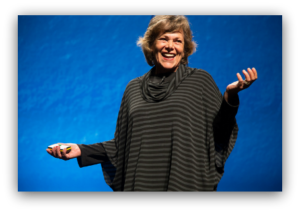[email-subscribers-form id=”2″]
Financial Mindfulness exclusive interview with Dr Ellen Langer – Part 2
Financial Mindfulness exclusive interview with Dr Ellen Langer – Part 2.
We continue with our exclusive interview with the world-renowned Professor Ellen Langer. Part 1 can be found here
Financial Mindfulness:
So, what is the difference between mindfulness and positive thinking?
Dr Langer:
“Positive thinking says things are positive, by definition. Mindfulness says outcomes are neither positive or negative, they are what they are.”
“If you compliment someone and they take that as ‘oh aren’t I wonderful’, then they become vulnerable to an insult.”
“But if the compliment is neither good nor bad, then the person complimented is pleased, but better able to deal with changes in the other person.”
“When you understand that outcomes can end in any number of ways, it would be foolish to always see the negative version.”
“I have been told I mark the edge of the optimism continuum!”
Financial Mindfulness:
You’ve said it’s not about meditation, why is that?
Dr Langer:
“Mindfulness is very different from meditation. Meditation is not mindfulness, meditation is a process, a program one goes through to achieve post meditative mindfulness.”
“It’s fine, it’s not mutually exclusive with the work I do and I did some early work in meditation but mindfulness as we study it is more immediate, not better or worse.”
“You can more easily work mindfulness into companies, schools and so on without people having to spend 20 minutes twice a day to meditate.”
“To be mindful is to stay aware of what’s going on, once you recognise that things are not always as thought, then you naturally stay tuned in.”
“It’s when you believe 1+1 always equals 2 and always will be, and can be nothing else that you don’t pay attention to the context.”
“So now every time someone asks how much is 1 and 1 you’re going to pay attention to the context, are they talking about piles of laundry?”
Financial Mindfulness:
Can you think of dangerous assumptions we make when our brains are on ‘autopilot’?
Dr Langer:
“What happens when you are on autopilot is you are presuming everything is going to stay the same.”
“Let’s say you’re driving on ice and the car starts to skid, what do you do? You ask this of people older they’re going to tell you that you gently pump the brakes to get control of the car.”
“That was the right thing to do before there were anti-lock brakes. Now there are anti-lock brakes the right thing to do is to firmly hit those brakes, hard. What you were taught is not only ineffective its likely to cause accidents.”
“Things are changing all the time, all things, and most advice was good then and may not be so good now. So, understand that change is inevitable.”
Financial Mindfulness:
Why has mindlessness become so pervasive?
Dr Langer:
“Because that’s what schools teach – they teach absolutes, they teach that 1+1 is 2 and always will be 2, rather than realise that the right answer always depends on the context.”
“So, I tell the story I was at a horse event. I’m a straight A student, right? This man asked me if I could watch his horse for him cos, he wants to get his horse a hot dog.”
“Well, I thought ‘that’s ridiculous, I’m Harvard-Yale all the way through nobody knows better than me horses don’t eat meat! Period. End of story’. Well, he comes back with a hot dog and the horse ate it.”
“And then I realised everything I thought I knew could be wrong. My As were hindering me rather than helping me.”
“Everything you think you know could be wrong in some context. Every time you think you’re wrong, it could be right in another context.”
“We don’t look for that though. Every time people make mistakes, they try to go back to the original plan, as if that original plan was handed down from the heavens, rather than that original plan itself was just a decision, which means there was uncertainty.”
“There are many things in place out there that teach us to look for absolute right answers, and as soon as we accept things as absolute, we’re setting ourselves up to be mindless.”
Financial Mindfulness:
How can being mindful during the pandemic help us?
Dr Langer:
“I wrote about something about people who have a view of defensive pessimism, that they are hurting themselves and should switch to mindful optimism. Defensive pessimism is assuming the worst and expecting the worst, but hoping for the best.”
“That’s problematic in two ways. First, you tend to get what you expect.”
“The second is around the idea of ‘hope’. Everyone around the world thinks hope is a good thing. I don’t. Being hopeful is better than being hopeless, but hope has built into it an expectation of failure.”
“You don’t get up in the morning, go into the kitchen hoping that you’ll get a cup of coffee. You just walk in and expect to get a coffee and you have the coffee.”
“Negative expectations lead us to be stressed and stress makes us more vulnerable to all disease.”
“If you assume an attitude of mindful optimism it doesn’t mean you have your head in the sand, or you’re not paying attention to things, it means you make a plan.”
“So, we have a pandemic. My plan is I’m going to keep social distance, wear a mask and wash my hands as frequently as I need to and then I just go about my business.”
“If you do that, as a result you’re building up the resources so should something happen you’re going to be stronger and better able to deal with it.”
“There’s a little expression that says ‘no worry before it’s time’ – it’s very important for your physical and your mental health.”
“Also, we need to remember life consists only of moments. This might sound a little like it’s from a Hallmark card, but there’s something deeper in it: remember your life is about moments. That’s all it is and where there’s a pandemic, whether you’re at home or work all you have is that moment.”
“If you make that moment matter, then it all matters.”
“A mindful approach means I can find real advantages to living in a pandemic and I think if we stop and become more mindful, most of us can.”
“An example is Zoom meetings.”
“I’m loving the zoom meetings, not just because I don’t have to worry about my choice of shoes and pants that day, but when I’m zooming with a large audience, I see everyone and they’re just a foot away from me. Whereas when I’m lecturing to a large group I’m here, and the audience is removed by being over there – normally it doesn’t feel as personal.”
“Zoom also gives me the names of everyone in my lecture, so if I have to ask you a question, I don’t have to make believe I remember your name, I just look and I see your name.”
Financial Mindfulness:
How can mindfulness help us with our working lives during the pandemic?
Dr Langer:
“One of the things I argue about a lot, although I haven’t written much about it, is we have many business gurus who push the idea of ‘work-life balance’.”
“It’s a bit like hope – hope is better than being hopeless but not as good as just assuming everything will be fine. Work-life balance is better than work-life imbalance.”
“But there’s a better way, which is work-life integration.”
“One of the strong advantages of all this working from home is more integration of our lives into work.”
“I’ve given lectures where my dogs have been barking and I’ve been talking to people and their young children walk in on them and so what? It’s all part of life and helps us integrate our home and our work life.”
“One of the big mistakes people make about work is putting up with feeling so stressed at work and I don’t think that that’s a good thing, I don’t think doing something 40 hours a week and being stressed is good for you.”
“So, in many respects the pandemic is a time to figure out what you enjoy, what you miss, what you don’t miss, and then you go forward with this opportunity that you wouldn’t have had, because you would have been in your typical routine.”
“So, try to enjoy your job. Sure, you can’t always be eating out of restaurants. I haven’t eaten out since Covid and I’m enjoying cooking enormously.”
“You come to learn that life isn’t going to rise or fall on one meal, so what if one meal turns out to be awful, who cares?!”
“Be aware of the possibilities and move on to enjoying the next moment!”
Financial Mindfulness:
Dr Ellen Langer, it’s been a pleasure, thank you.
Dr Langer:
Thank you, it’s been lovely talking with you. Stay safe.










